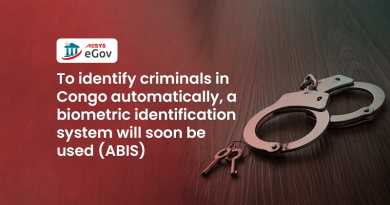Why the Nigerian Biometric SIM Registration Project is an Example to Follow
Back in 2011, the Nigerian Communications Commission (NCC) budgeted 6.1 billion Naira to conduct biometric registration on SIM (subscriber identification module) cards in six geopolitical zones of the country in addition to Lagos. The project dragged on for several months and ended with the NCC using a mobile operator biometric SIM card database. Under the new biometric SIM registration system, every Nigerian mobile phone user will now be required to provide their biometrics for authentication.

Background
The main reason behind deploying a biometric backed SIM registration system in Nigeria was to help law enforcement agencies improve the country’s security. The Authority considered that securing identities of all nationwide mobile network subscribers would help them combat fraud and criminal activity. The goal was to implement a solution that is secure, cost effective, widely accepted, and integrates with other identity databases in Nigeria.
Methodology
The regulatory structure of Nigerian telecommunication companies requires mobile phone users to register their biometric credentials (e.g. a fingerprint) with the government, usually with a network service provider as an intermediary. The process includes enrolling subscriber fingerprints and linking their identity with the ownership of SIM cards and mobile phone numbers.
Nigeria has mandated the biometric registration of SIM cards for mobile phone users in order to cut down on illegal activities. The goal was to implement a solution that is secure, cost effective, widely accepted, and integrates with other identity databases in Nigeria. However, this biometric SIM registration scheme is now in effect not only in Nigeria but in nearly all African countries.
Development vs. human rights
Despite the undeniable and widespread use of biometric technology worldwide, there are inherent challenges. When we expatiate on ‘development’ about ‘human rights,’ a frequent criticism comes. Human rights are worthy for taking into consideration but they are not high on the priority list for a developing country like Nigeria, because they have limited resources to build a basic infrastructure and provide access to essential services.
According to the Office of the UN’s High Commissioner for Human Rights (OHCHR), development and human rights are interdependent, as they both aim to promote well-being and freedom, based on inherent dignity and equality of all people.
Results
 Nigerian authorities have cracked down on people selling illegally pre-registered SIM cards through the biometric SIM registration program. According to the NCC (Nigerian Communication Commission) the registration of subscriber identity modules (SIMs) in the country has drastically reduced the spate of criminal activities. Due to the fact that mobile phone subscribers are unable to use any SIM card without first registering it after completing their biometric verification, when people use their mobile phones to perpetrate criminal activities, they will quickly be apprehended by security agencies.
Nigerian authorities have cracked down on people selling illegally pre-registered SIM cards through the biometric SIM registration program. According to the NCC (Nigerian Communication Commission) the registration of subscriber identity modules (SIMs) in the country has drastically reduced the spate of criminal activities. Due to the fact that mobile phone subscribers are unable to use any SIM card without first registering it after completing their biometric verification, when people use their mobile phones to perpetrate criminal activities, they will quickly be apprehended by security agencies.
Conclusion
The biometric SIM registration exercise directed by the Nigerian Communications Commission (NCC), was a welcome development. It caused governments in the African region to adopt accurate, cost effective, secure and robust biometric systems. Biometric projects by the Nigerian government are also pushing various private sector deployments.
According to the Commission, the fundamental objective of commencing a biometric SIM registration is to certify that no one was ruled out from the exercise, as the “data collected will later be used to build a national identity management database by the National Identity Management Commission.” The East African Communications Organization (EACO) has also been a major patron for biometric SIM registration, encouraging national governments in the region to adopt relevant laws and regulations.
M2SYS has helped telecommunications companies and the NCC create a centralized database that includes over 140 million SIM card user fingerprint biometric templates. Read the full case study here or contact us directly for further information.










